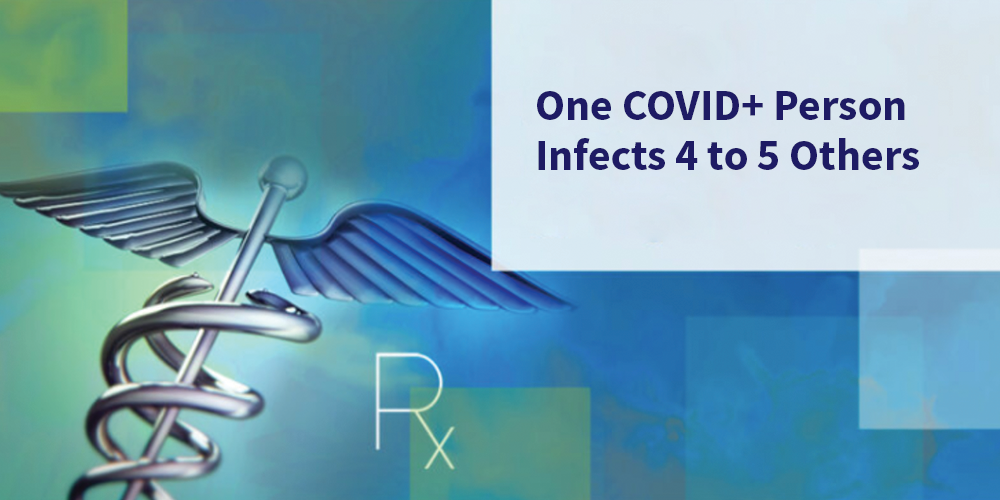One COVID+ Person Infects 4 to 5 Others

When the coronavirus pandemic first emerged, the World Health Organization estimated that each sick person would infect, on the average, two others. However, a new study from Duke University shows that those estimates should actually be doubled, with one infected individual passing COVID-19 to four or five people.
The findings also show that governments in the 57 countries analyzed had about 20 days from their first reported cases to enforce preventive measures such as social distancing and protective face covers to prevent widespread infection and death.
The numbers confirm that there was a much smaller timeframe to reduce infection than initially expected. Most of the countries studied were slow to respond and any efforts after 44 days were virtually ineffective in preventing coronavirus outbreaks.
The study further provides information about calculating herd immunity, where enough people become immune to a disease to make its spread unlikely. Estimates are that 78% of the global population needs to be infected with COVID-19 in order to reach herd immunity. This means that about 6 billion more people would have to become infected beyond the confirmed 33.2 million cases worldwide before herd immunity could be achieved.
The study also provides guidelines for preparing for a second wave of COVID-19 or other future pandemics.
The Duke University research was published in PLOS One and can be found here.